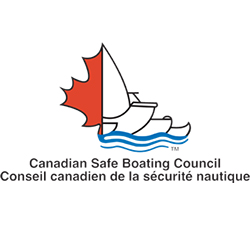CANADIAN SAFE BOATING COUNCIL ANNUAL SYMPOSIUM

“Boating is the quintessential Canadian summer activity; our role quite simply is to help make it safer,” says Jean Murray, Chair of the Canadian Safe Boating Council (CSBC), at the launch of its annual Symposium. The CSBC hosts a symposium each year, inviting boating organizations from around the globe to discuss ways to encourage the boating population to enjoy boating – with safety in mind. Over the next two days, the Hilton Whistler Resort and Spa will be home to close to 70 Symposium participants.
This year, the CSBC is excited to leverage the expertise of boating and boating safety experts from Canada and the United States. The agenda includes:
• A pre-Symposium in-the-water workshop in Vancouver on cold water response techniques – vital for the Canadian climate
• Panel discussions on balancing the bottom line with boating safety, and emergency responders on the water
• Perspectives on conserving waterways for future boaters
• Results of a campaign designed to increase safety for children and adults in Canada’s remote, rural and coastal communities
• Front line policing and conservation officer perspectives
• Insights on the emerging sport of stand-up paddling
• Perspectives from the boat insurance field
• An interactive session on social media strategies
• A demonstration of the exciting new sport of fly boarding
• Keynote speech on a near-tragic ocean rowing expedition
An impressive range of boating organizations will be represented, including Transport Canada, the United States Coast Guard, the National Safe Boating Council (US) and many others. The Symposium is a matchless opportunity for boating safety experts to examine new ways of promoting safe boating and to exchange best practices.
Canada boasts the world’s longest coastline and the largest fresh water lakes on the globe, so it is not surprisingly a nation of boaters. In fact, according to an Ipsos Reid poll conducted for CSBC in May 2013, some 37% of Canadian adults (or 12 million) went boating at least once last year. Unfortunately, because so many enjoy boating, fatalities do occur (2006-2010 saw an average of 127 deaths each year).
And while the number of deaths has declined in recent years, each one represents a tragic loss, because so many are preventable. This year alone, 102 people lost their life while boating. With its ongoing broadly based efforts to promote public awareness of boating safety practices, the Canadian Safe Boating Council’s objective is to see the downward trend continue. At the core of its 2013 national safety campaign are five key messages to the boating community:
• Wear a Personal Flotation Device or Lifejacket
• Don’t Drink and Boat
• Take a Boating Course
• Be Prepared, Both You and Your Vessel
• Be Aware of the Dangers of Cold Water Immersion
With efforts like these, along with measures such as mandatory boater education mandated by Transport Canada, the results are encouraging.
“We are certainly pleased with the success of our boating safety awareness and education campaigns,” notes Ms. Murray. But with every change in attitude that the CSBC and its partners achieve among the boating community, there are newcomers to boating who do not understand the potential risks or take the steps to ensure that their day on the water is as safe and enjoyable as possible.
“Our challenge remains one of making boating safety practices second nature to all who participate. Our annual Symposium is an excellent opportunity for like-minded organizations and individuals to share ideas and best practices, and seek solutions together, through partnership and collaboration,” Ms. Murray concludes.
The CSBC was established in 1991 as a focal point for collaboration and coordination of efforts between government departments and agencies responsible for recreational boating issues and the many private sector organizations and companies in the recreational boating field. Since that time, the Council has introduced annual safe boating awards, commissioned studies on personal flotation device wear, led annual Safe Boating Awareness Week campaigns across the nation, and promoted cold water awareness training. In 2010, the CSBC launched SmartBoater.ca, a dynamic web site for educators, the media, and the public, which contains information about safe and responsible boating.
The CSBC was recently awarded multi-year funding under Transport Canada’s Boating Safety Contribution Program to lead the design and delivery of a national multi-faceted, partnership-based safety campaign over three years, including conducting and disseminating research to help ensure that boating safety strategies across Canada are oriented to both current and emerging needs.
Earlier this year, the CSBC became a founding signatory to a set of International Lifejacket Wear Principles aimed at normalizing lifejacket wear when boating. The CSBC is calling on boating organizations across Canada to sign on to these principles at www.lifejacketwear.com.
To learn more about the CSBC, visit our website at www.csbc.ca.



























